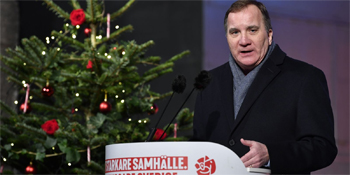
Image source: https://www.centerpartiet.se/partiledarvalet/muharrem-demirok
All politics is local, it’s said. But even local politics can have national and even international angles. So it is with the election of the new Swedish Center Party leader, Muharrem Demirok. Outside of the Center party in Linköping, no one had really heard of him. All eyes are on him now, though, and not only on his Turkish citizenship but also on the fact that Center party has traditionally been a rural-based party and Demirok is a Stockholm suburbs baby.
Demirok was born in Sweden in 1976 of a Swedish mother and Turkish father. Swedish citizenship was a possibility via his mother, but dual Swedish and Turkish citizenship was not. Muharrem’s parents gave him Turkish citizenship. When he was 21, Demirok applied for and received Swedish citizenship.
The rules for citizenship are as complex as human relations are complex, and the rules change over time as well. Only in 2001 did Sweden allow dual (actually, multi) citizenship. Demirok applied for Swedish citizenship in 1997. However, since dual citizenship was allowed in Turkey, it was not a problem for Turkey that Demirok became Swedish. In its turn, Sweden probably never specifically asked that Demirok renounce his Turkish citizenship, or check that he had. Sweden at that time was already considering loosening the single citizenship rule that had been in place since 1963. It’s unclear, but having both might not have seemed to matter. Now though, Demirok has said he is formally renouncing Turkish citizenship, in response to real or imagined national security concerns evinced by Center party members and others.
Besides citizenship, a matter that concerns party members is to what degree the Center party is losing is rural voter base. The Center party has always been “the farmer’s party,” with deep roots outside of city centers. Even as late as 2017, the Center party campaigned (among other things) for increasing the number of horses in the countryside – “for every ten horses a new job is created!”.
In his first long speech as Center party leader, Demirok invoked the countryside several times, claiming “all of Sweden must live.” One of the reasons that Demirok is now party leader, though, is that his predecessor Annie Lööf led a rather unsuccessful election campaign. Many of the voters she and the Center party lost were those rural voters. Demirok will have his work cut out for him to win them back.




